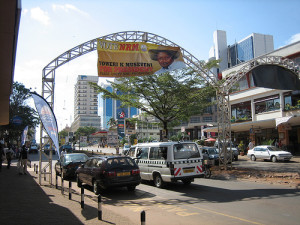Iwaya says it better than anyone:
W-2-W is not about Dr. Besigye though the government propaganda machine has worked its damn hardest to try and reduce it to the person of Besigye. It is about the appalling economic situation Ugandans find themselves in today led by an unresponsive government that folds its hands and declares, “There’s nothing we can do,” to alleviate your suffering, but you have got to keep paying those taxes on time. W-2-W is about many Ugandans finding, those who have jobs, that pretty soon those jobs will have no meaning because they can barely afford the transport costs from home to the place of work, fuel prices so high, to work will be like earning money that never settles in your wallet, you are working for your transport costs, your food costs, rent—and you have nothing left for yourself. W-2-W demonstrations are all about the things that have been going wrong with Uganda since Ugandans first had self rule, decided to keep the faith in leader after leader because each leader promised there would be a change and now we find ourselves in worse straits than we were 50 years ago and suddenly we are all realising an important truth, “Politics is too important to be left to the politicians.” We have all got to get involved and struggle for a change towards where we wish Uganda to be headed.
You should read his entire post: The Walk to Work demonstrations, to me
